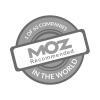 UPDATE 7 October 2013: At SMX East last week, in the Google Authorship session, Google Webmaster Trends Analyst Pierre Farr also confirmed that Google Authorship is not a factor in ranking search results at the present time.
UPDATE 7 October 2013: At SMX East last week, in the Google Authorship session, Google Webmaster Trends Analyst Pierre Farr also confirmed that Google Authorship is not a factor in ranking search results at the present time.
Original Post:
“We don’t use Authorship for ranking,” said Google Webmaster Tools Analyst John Mueller in a Google Webmaster Central Hangout broadcast 27 September 2013.
The statement came in response to a question posed at 48:24 in the video recording of the Hangout. A user had noted that scraper sites were able to outrank his original content in Google Search results, even though he had used Google Authorship for the content, and Google was displaying an Authorship rich snippet result for him.
Mueller responded, “Well, we don’t use Authorship for ranking,” and went on to clarify that just because it looks like the content is written by a “well-known author,” doesn’t mean they will show it higher in the search results.
Embedded below is the entire Webmaster Central Hangout. Skip to the 48:24 mark in the video to hear the Authorship-related conversation.
At 48:56 Hangout participant Rob Maas asks Mueller to repeat what he has just said. Mueller this time says, “We don’t use it for ranking at the moment.” (More on the significance of that last phrase below.)
What Happened to Author Rank?
When Google introduced the Google Authorship (rel=author)a program in 2011, Matt Cutts and Othar Hansson of Google made a video explaining Authorship markup and its possible benefits. At 1 minute into that video, Matt asks Othar whether webmasters using rel=author can expect to get a rankings boost by using it. Othar responds, “It’s obviously early days , and we hope to use this information–and really any information–as a ranking signal.” He goes on to say that they want to gather information on the credibility of authors from this and many other sources, and “eventually” use that as a ranking signal. “We’re only experimenting with that now,” he adds, “and who knows where it will go?”
That statement, combined with Google patent expert Bill Slawski’s publications about Google’s Agent Rank patents (which mention “authors” as one type of “agent” for which Google might want to collect trust data and use that as a ranking signal), led to a frenzy of excitement and speculation on what had generally come to be known as “Author Rank” (sometimes written as “AuthorRank” in homage to the PageRank algorithm formula that is the basis of Google’s search).
In brief, the Agent Rank patents describe a system wherein a search engine could identify unique “agents” or “entities” and then measure and evaluate signals pointing to those agents (such as social or other engagement signals), and then, in the case of authors, score them according to their perceived “trust” or “authority” in various topic areas. That score could then be used to boost search results for that author’s content when it is about a topic for which she has a high authority score.
Author Rank became the catch-all phrase for this idea that Google wanted to use data about Authors’ content in a system that would reward trusted authors with higher rankings for their content in the subjects for which they are most trusted by others.
With Google+ providing the means of identifying individual authors, and the adoption of the rel=”author” markup as a means of connecting and verifying each author’s content, it appeared that Google had all it needed to begin moving toward use of Author Rank as an active part of its search ranking algorithm. Many expected it to happen within the first year.
But now over two years has passed since the introduction of Google Authorship, and most experts on the topic (yours truly included) have seen no well-substantiated evidence that anything like Author Rank has been incorporated into the Google search results. Sure, a number of authors who use Google Authorship and have been getting the rich snippet result in search (the author’s Google+ profile photo next to the result, along with their name and (often) the number of Google+ circles they are in), have reported that they have seen more organic traffic to their sites and better rankings for their content. but that could be attributed to any number of causes, not necessarily Author Rank.
For one thing, it has been clearly demonstrated that Authorship rich snippet results get higher CTR than normal for lower positions on the search page. That alone will bring in more traffic, and can set in motion a chain of events (such as increased social signals and more links) that will cause the content to rank higher. In addition, it is possible that Google uses higher than normal CTR for a search result as a reason to increase its ranking.
So Is Author Rank Dead?
No. At least, I seriously doubt it is dead. There have been too many encouraging signs, especially recently, that Google is still very actively interested in the concept and wants to (eventually) implement it in some way. Among those signs have been:
- The quotation from former Google CEO Eric Schmidt‘s book: “Within search results, information tied to verified online profiles will be ranked higher than content without such verification, which will result in most users naturally clicking on the top (verified) results. The true cost of remaining anonymous, then, might be irrelevance.” While it must be kept in mind that this book contains Mr. Schmidt’s personal speculations about the future of the Internet, and is not at all an official Google document, it is nonetheless interesting to hear him make such a strong statement about author identity and ranking.
- Statements by Google’s Matt Cutts at conferences this year to the effect that the reputation of content creators is something that Google will continue to “care more about over time.”
- A clear statement by Matt Cutts in a Google Webmaster video of June 2013 that Google is still very much interested in Google Authorship and that they desire to use it to boost “subject area authorities” in search results. It should be noted that Matt’s language there remained in the future tense. These were things Google still “hopes to do” or “intends to do.”
- The introduction of the new “In Depth Articles” feature in search. In their suggestions for how to get your content to qualify for the feature, Google recommended using Google Authorship, adding that, “Authorship markup helps our algorithms to find and present relevant authors and experts in Google search results.”
- For a long time now Google has been showing search metrics for an author’s Google Authorship-related content in Google Webmaster Tools. This demonstrates that Google is tracking and accumulating such data on verified authors, even if it isn’t (yet) using it for search ranking purposes. (To see yours, go to Google Webmaster Tools logged in to the same Google account you use for Authorship, and navigate to “Author Stats” under “Labs.”)
- At 48:54 in the video embedded above, John Mueller says that they don’t use Authorship for ranking search results, “at the moment.” That is significant, as he is not ruling out that they may at some future point.
It certainly seems that Google intends to move toward some kind of ranking system based on the subject-area authority of content creators. So why isn’t it active yet (presuming that Mueller’s statement above is accurate?).
Why Is Author Rank Being Delayed?
 It is certainly impossible for any of us on the outside to know why Google isn’t yet using data. But we can speculate on some reasons why they might be delaying.
It is certainly impossible for any of us on the outside to know why Google isn’t yet using data. But we can speculate on some reasons why they might be delaying.
- Spotty adoption of Authorship. While it appears that more and more content authors are implementing authorship, and many publishing and blogging platforms are making it easier to do so, there are still way many more authors who don’t use it than who do. Implementing Author Rank now might mean that many very reputable authors would get lower search results, something Google is not likely to want.
- Low adoption by top publishers. In particular, many major publications and brand sites have ignored or even shunned Authorship. In some cases, they already do so well in search results, they may feel they don’t need it. In other cases, particularly for brands and corporations, they have serious reservations about over-promoting particular employees, who may later leave the organization.
- Social signals are still weak signals. Because social signals (such as +1’s, likes, and reshares) are so easily given, they are hard to evaluate. Commenting about +1’s, Matt Cutts said at a conference earlier this year that they had abandoned an experiment with allowing users to +1 search results, as they found the plussing habits of users virtually meaningless and difficult to discern.
- Social Signal parsing is still in its infancy. As AJ Kohn said in his article “Build Your Authority, Not Your Author Rank,” Google is investing heavily in trying to learn how to evaluate social signals, but has a long way to go before it can feel confident about their meaning and utility.
- Misattribution of Authorship is still a problem. There have been many documented cases of Google displaying the wrong author for a piece of content as a rich snippet result. Sometimes this is the fault of the way the webmaster implemented Authorship markup, but other times it occurs because Google has been trying to automatically attribute Authorship for some well-known authors who haven’t implemented the markup themselves. Sometimes that goes awry with humorous results.
For these reasons and probably others of its own, Google has delayed full use of Author-related trust data as a ranking factor in Search. If there is one thing regular observers of Google know about the search behemoth, it is that they are very (sometimes maddeningly so!) patient, and will introduce no search factor before its time.
So Should You Abandon Google Authorship!
NO!
First of all, even aside from any Author Rank-type benefits, getting the authorship rich snippet result in Search is nothing to be sneezed at. Aside from the already-mentioned CTR boost,

- Your author photo helps establish and reinforce your personal brand. I have actually had people recognize me in public because they see my face so often in their search results!
- The byline in Authorship results links to a dedicated Google search just for that Author’s content, allowing users to search more deeply for what you’ve created.
- The Google+ circles display acts as a trust mark, and links to your Google+ profile so others can add you to their circles.
In addition, if you are using Authorship now, Google has the opportunity to track your content from across the web (and on Google+) and accumulate data on you that could put you ahead of the game once any type of Author Rank-like factor becomes a reality in search results.
In the meantime, I think it is best to act as if Author Rank is already here, even if it is not. The kinds of things that you would do to build better Author Rank can benefit you right now, even without Author Rank. They are the kinds of things that build you real-world reputation and authority, that make people want to recommend you to others, link to you, and do business with you themselves.
Among those things you should be doing now are:
- Create authoritative, useful, memorable content. Don’t bother recycling and rehashing what everyone else has already said on a topic. Write when you have an original point of view or can contribute real help on a topic that people can’t find just anywhere else.
- Concentrate on your areas of expertise. I would never tell anyone to write only about a few topics. But you should make sure that you are regularly producing good, fresh content about the topics for which you most want to be known.
- Build a personal brand. Work hard to establish a trusted reputation in your field. This doesn’t mean being annoying with self-promotion. Rather it means becoming so useful and helpful, and so accurate and insightful, that others naturally want to recommend you to others. It also means building your reputation off-line as well. Seek to get speaking engagements at conferences. Attend meetups and gatherings about your field. Get published with a real book.
- Build an engaged social network. Strategically build and nurture relationships via social media with those who can understand your value and will help recommend and spread your work to others.











